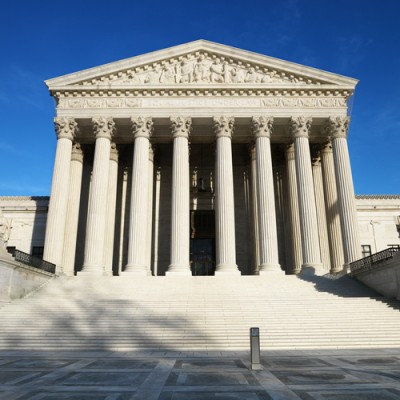Supreme Court overturns $2.7M sanction for discovery misconduct

The U.S. Supreme Court on Tuesday overturned a $2.7 million sanction for discovery misconduct, saying a district court erred by including legal fees beyond those resulting from the misconduct.
The sanction had been imposed against Goodyear Tire & Rubber and two lawyers representing the tire maker. A federal judge in Arizona had imposed the sanction for failure to disclose tire test results during discovery in a suit by family members who blamed the crash of their motor home on a failed tire.
When a federal court uses its inherent authority to sanction bad faith misconduct through an award of legal fees, the amount can’t exceed the fees incurred by the wronged party because of the misconduct, the Supreme Court said.
Justice Elena Kagan wrote the unanimous opinion (PDF) for the court. Justice Neil Gorsuch did not participate.
The case had already settled when lawyers for the plaintiffs discovered the information had been withheld. As a result, the district court didn’t have the option of imposing a default judgment against Goodyear. Instead the court found that the family members had incurred $2.7 million in legal fees since Goodyear first made its dishonest discovery response, and the court imposed that amount as a sanction.
The district court also said that, if its award were reversed, it would impose a “contingent award” of $2 million. The $700,000 reduction represented fees family members had incurred developing claims against other defendants and proving medical damages, according to Goodyear’s own estimates. The San Francisco-based 9th U.S. Circuit Court of Appeals affirmed the entire $2.7 million sanction.
But Kagan said a district court has to follow a “but-for causation standard” when determining a sanction. “The court’s fundamental job is to determine whether a given legal fee—say, for taking a deposition or drafting a motion—would or would not have been incurred in the absence of the sanctioned conduct,” Kagan said.
When a sanction becomes punitive, Kagan said, a court would need to provide procedural guarantees applicable in criminal cases, and they were not provided in the Goodyear case.
Kagan added that, in exceptional cases, the but-for standard would permit a trial court to shift all legal fees incurred at some point in the litigation.
The plaintiffs had argued this is such a case, because the litigation would have settled as soon as Goodyear disclosed the tire test results. But the district court’s $2 million “contingent award” made clear it did not perceive the entire $2.7 million sanction to be caused by the misconduct, Kagan said. Also, Goodyear could have asserted additional defenses, and the plaintiffs did not prove there would have been an immediate settlement, Kagan wrote.
Kagan said it was unclear whether the district court was following a but-for causation standard when it developed the $2 million contingent sanction, so the amount would have to be reconsidered on remand. The district court should first consider, however, the plaintiffs’ argument that Goodyear had waived its ability to challenge the contingent sanction, Kagan said.
The case is Goodyear Tire & Rubber Co. v. Haeger.



